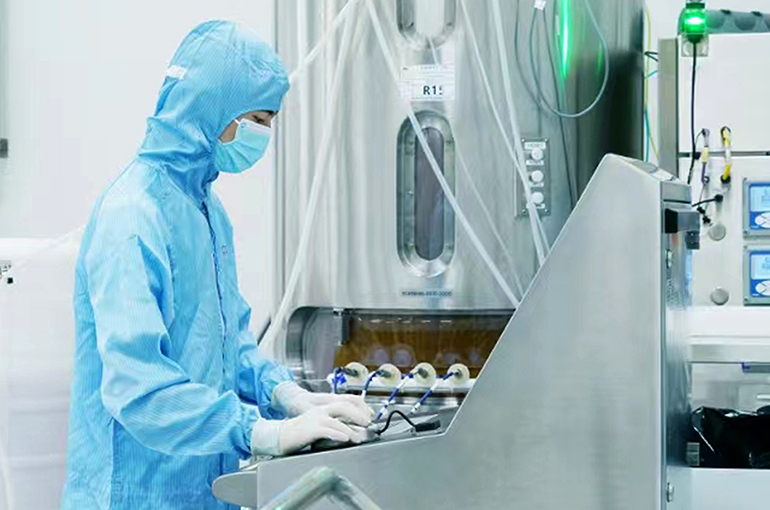 BD Deals Emerge as New Favored Partnership Mode Among Chinese Biotech Startups
BD Deals Emerge as New Favored Partnership Mode Among Chinese Biotech Startups(Yicai) Oct. 29 -- Business development deals between Chinese biotech startups and overseas pharmaceutical firms are surging and evolving into more varied forms of partnership.
BD deals commonly involve startups licensing the regional or global market rights to their novel drugs in early clinical trials to multinational corporations. While these deals offer fledgling businesses an immediate cash “transfusion,” some observers argue that they risk depriving those firms of the ability to generate sustained, long-term revenue.
“Some people say we should stop doing BD in future. That’s wrong!,” Song Ruilin, senior president and chief expert at the China Pharmaceutical Innovation and Research Development Association, told Yicai. “BD is a market phenomenon and there is no need to ban it. Many companies can only continue to develop thanks to BD deals.”
China’s innovation capacity is increasing fast, and opportunities for these deals will grow in number, Chen Bing, vice president for international business development, partnership, and strategic investment at AstraZeneca, told Yicai.
A BD deal typically entails a Chinese research and development team developing a novel drug candidate to a certain stage and then handing the project to a partner more familiar with overseas markets, which will then drive the product’s subsequent development abroad, Chen noted.
This partnership model suits the overseas development of products in the early development stage, especially for Chinese startups unfamiliar with foreign markets, he added.
Looking down the road, co-creation is recommended as a more mature and balanced cooperation model that does not simply transfer the technology or products but involves both parties jointly in the innovation from the earliest R&D stages, Chen pointed out.
Unlike most early BD deals, where the rights to develop and benefit from overseas markets in the later stage are entirely ceded to foreign partners, some recent alliances have included contractual provisions for the Chinese licensor to receive a share of overseas profits, Song said.
For example, China’s Innovent Biologics licensed three pipeline cancer drugs to Japan’s Takeda Pharmaceutical for up to USD11.4 billion, which includes milestone payments and royalties.
Under this emerging model, licensors accept some degree of overseas clinical risk while getting the chance to share in commercial returns in overseas markets, thereby softening the long-standing perception that Chinese biotechs have historically had “low participation and low returns” in the overseas business, Song said.
China’s new drug startups were previously “in China, for China,” but the entry of multinationals has shifted the sector into an “in China, for the World” phase, according to Li Ning, vice president of the Cancer Hospital, Chinese Academy of Medical Sciences.
As China’s drug innovation ecosystem matures and firms build technical reserves, the quality gap domestically created novel drugs have had with global treatments is closing, so the country is entering an “in China, in the World” era, Li noted.
Pharmaceutical innovation in China is now dominated by scientist-founded small and mid-sized firms with technological advantages, and no longer by large drug companies, he pointed out.
By 2040, Chinese innovative drugs will account for 35 percent of the new drugs approved by the US Food and Drug Administration, according to a recent report by Morgan Stanley.
Editors: Tang Shihua, Futura Costaglione